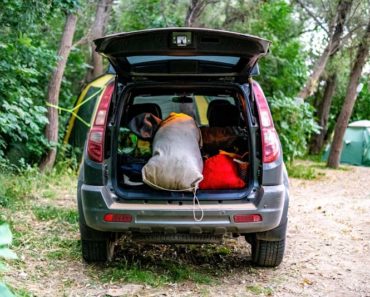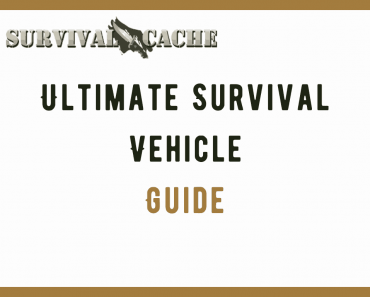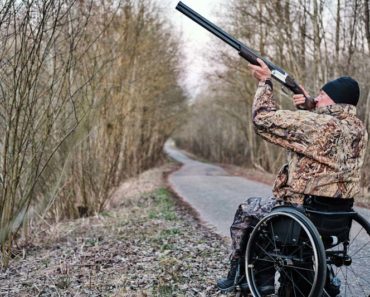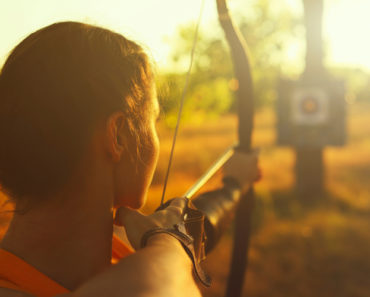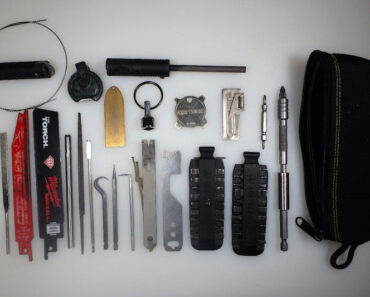I’ve been a prepper for almost 12 years now, and I often think about my life before I started this journey. I used to work for a big media company, and I had to manage a team of 60 people. Being part of such a large team, I often attended various management courses that would eventually help me organize my team to provide the required results.
Back then, I learned that no matter how much time and effort you put into a project, you can’t do it all. We all have our limitations, and we have to strive to improve ourselves.
Some of the learnings from those times stayed with me and proved useful in organizing my prepping lifestyle. After all these years, I’ve come to the conclusion that preppers face many limitations, and few survival experts bother to discuss these limitations in their literature.
When you first start to read about emergency preparedness, you often feel intimidated by the amount of things you need to do or the stuff you have to buy. Not to mention that trying to accumulate too much knowledge can often lead to burnout since many folks have to stretch their free time as much as possible.
Even so, anyone can prep as long as they manage to identify their limitations and work with them. It’s true that not everyone will be able to buy or build a bunker in the middle of nowhere, but that won’t work for most people anyway. So, let’s look at the most common limitations that make both new and old preppers feel intimidated and even stop them in their journey.
Budget limitations
Money is the root of all evil, and unfortunately, we cannot live without money in today’s “advanced” society. When it comes to prepping, without a doubt, there will be some expenses, and you will realize this as soon as you start doing the math on how many resources your family needs to survive for one month, six months, or even a year. There will be a lot of stuff that you will have to buy, and no matter how ingenious you are to make your own stuff, there will be certain expenses that will affect your budget.
In today’s economy, millions of Americans are living paycheck to paycheck, and a lot of families out there are struggling to make ends meet. For them, spending money on prepping is certainly not a priority, even if emergency preparedness will become a priority in the near future. You can’t buy an expensive survival knife when there are bills piling up, and you can’t spend money on MREs when your kids need clothes and shoes for the changing season.
For preppers struggling with financial limitations, there are basically two things they can do in order to supplement their prepping budget. They can find ways to increase their income, which means getting a second job, doing overtime, or starting a “side hustle,” as kids call it, or they can limit their budget strictly to their needs and redirect the money from their wants towards prepping.
When you lack money, you find ways to be more frugal, and this is a good thing since the folks doing this are usually better prepared to handle times of austerity. Not to mention that they have figured out ways to reuse and recycle most of their stuff; they buy in bulk and rely on home cooking for their nutrition, and so on.
Time limitations
They say that both the poor and the rich want more time, and this is one of the resources we all need. I rarely meet people who can say, “I have too much free time,” and usually, these are the folks who waste their lives by doing nothing productive.
Preppers often find themselves in a challenging balancing act as they juggle their prepping responsibilities with the demands of their jobs and families. The rigidities of daily employment, coupled with the time and energy required to nurture and support their loved ones, can leave little room for dedicated prepping activities.
Between long work hours, childcare responsibilities, and household tasks, finding the time to research, gather supplies, and develop comprehensive emergency plans can be a formidable task.
Nevertheless, they can still find ways to spend that little free time they have on preparedness endeavors. In my case, I used to play video games in my younger years, and this trend continued during my time in the office, where we had a group of enthusiastic gamers spending hours on end on an activity that didn’t provide anything of value except mindless fun.
As I grew older, I started to get back to my roots, and I decided to spend more and more time outdoors, just as I did when I was a child. I grew up in a family that treasured and respected nature, and from a young age, my grandfather started teaching me about foraging and outdoor living in general. Going back to those practices made me appreciate life even more, and it provided me with a sense of peace and calm that cannot be expressed in just a few words.
As a general rule, I decided to turn every outdoor experience into an opportunity to learn more about prepping and improve my skills. Even when I don’t find people willing to tag along, I go out alone, and I try to push myself and test my limits as much as I can.
My point is that every person out there has some “bad habits” that are nothing more than time wasters, and perhaps their free time should be spent on doing something more productive for them or their family. If emergency preparedness is important for you, chances are you will be able to prioritize your activities to find some free time for it.
Knowledge limitations
New preppers have limited access to accurate and comprehensive information about preparedness. Sorting through the vast amount of online resources, books, and conflicting advice can be overwhelming, making it challenging to establish a solid foundation of knowledge.
Nowadays, anyone can write a book, post it online, and get a lot of followers to confirm it as the absolute truth. Unfortunately, not everyone has the knowledge to write about the things that can save people, and some of the information out there will actually put them in danger.
One such example is the survival myths that are continually spread and still live in our memory today. I’ve written about such myths in some of my articles, and I’ve mentioned how few people actually have the time and willingness to research the facts behind those myths. It goes without saying that believing in such myths only builds up false knowledge, and it wouldn’t be wise to rely on it when the time comes.
I’ve said on various occasions that gathering information should be a planned process, and when I started learning about prepping, I did so by consulting old books and comparing them with the newer information available online. I never did anything blindly because some book told me so, and I always tried to figure out why I should do what I was told and if there wasn’t a better way to do it.
I advise you to get your information from different sources, regardless of whether you rely on books or the internet to do so, and always compare the materials info to eliminate contradictions or confusing data.
Skills limitations
Building knowledge is one thing, and developing skills is another thing. Let me put it this way: you may read hundreds of books and watch hours on end of instructional video, but that doesn’t mean you will be able to acquire the skills depicted in those books or videos. In order to develop such skills, you need to get your hands dirty and put to the test what you’ve learned.
If you do so, you will soon discover that you need many hours of practice to acquire various survival skills. Not to mention that not everyone has the inclination towards certain abilities, and that’s okay because we can’t do it all; we’re not superhumans. The most important thing is to discover what our skill limitations are so that we can improve them or find simple workarounds.
I know of skilled people who, no matter how much they tried, were never able to start a campfire using friction methods. As I said previously, it is okay to accept and acknowledge that you’re not good at something because that provides room for improvement. My friends don’t bother anymore with the primitive fire-starting methods, and they carry waterproof matches and lighters and all sorts of items that would help them start a fire in seconds.
I’m pretty good at living in the great outdoors by myself, and I enjoy getting my hands dirty and doing things the hard way just to prove to myself that I can survive no matter what. I’ve tried teaching my wife and my grandsons various outdoor living techniques, and unfortunately, only one of my grandsons has picked up my teachings and used them successfully. For all the other “trainees” it seems they were not very skilled in this regard and they gave up rather quickly. It was a combination of not having the right skill set and the proper mindset, which brings us to the next set of limitations.
Mindset limitations
I’ve said plenty of times that preppers and survivalists need to have a certain mindset to be able to succeed in their prepping journey, and I stand by my words.
The problem with today’s generation is that more and more people are being pampered and offered anything they want without having to put any effort into it. Young people are weaker than the previous generations, and they have an “I can’t do it mentality.” They need constant pushing and reassurance from their parents and are being rewarded even when they do nothing remarkable.
Even more worrying is the fact that their parents have a similar mentality, and they live in a comfort bubble. These are the people that you often hear say, “It won’t happen to me.” But when something does happen and pulls them from their comfort bubble, they start to panic, they ask for help, and when the situation doesn’t have a favorable outcome, they turn to therapy and pills to fix themselves. Now, don’t get me wrong, I’m not saying that therapy isn’t useful; I just believe that people nowadays give up too easily when push comes to shove.
If you aim to cultivate a survival mindset, it’s crucial to consistently emphasize the gravity of the situation. What’s on the line here isn’t just your own life, but, even more significantly, the lives of those you hold dear. You must ready yourself mentally to confront various challenges, including diminished confidence, bouts of depression, impaired decision-making, and lapses in focus, among others. Remember, your mind tends to falter before your body does, so it’s essential to continuously reinforce the reasons propelling you forward.
A survival mindset encompasses the capacity to discern the potential positives in all situations. Maintaining a positive outlook and actively seeking silver linings not only elevates your spirits but also fosters problem-solving abilities. This has been substantiated by research, demonstrating that maintaining a positive attitude greatly enhances your imaginative and creative faculties.
Should you persistently believe that nothing will succeed, you’re essentially setting yourself up for failure. The key to discovering effective solutions lies in maintaining a positive mindset. This principle is universally applicable, benefiting you in your pursuit of any goal.
Physical limitations
Physical limitations can impact off-gridders, survivalists, and preppers in significant ways. These constraints can be anything from temporary injuries like a sprained ankle to more permanent conditions such as chronic illnesses or the natural effects of aging.
Imagine you’re in a survival scenario: a sprained ankle might slow down your ability to gather resources, build shelter, or even defend yourself. Chronic illnesses could necessitate special medical supplies or medications that may be hard to obtain in a crisis. Aging brings reduced physical strength and endurance, which are vital for survival tasks like hunting, carrying heavy loads, or building infrastructure.
Moreover, hearing and vision impairments can hinder your situational awareness, making it harder to detect threats or opportunities. These limitations underscore the importance of adaptable survival strategies that take into account different physical abilities. It’s not just about what you have in your survival kit; it’s also about knowing how to make the best use of your physical resources and considering alternative approaches to address these challenges.
So the main thing you can do is take care of your body as best as possible and maintain good health regardless of your age. Now, if you have a physical disability, you must figure out ways to deal with it and still achieve your prepping goals. I wrote a while back about people dealing with disability and gun ownership, and the takeaway point from that article was that there are always solutions, so you just need to ask for help from professionals. You could ask your family or friends to help you complete tasks that are beyond your physical abilities, or you can invest in various tools and machinery to get the job done.
There are always solutions, and you shouldn’t stop just because you’ve aged or your body is not as strong as it once was.
A closing word
When it comes to prepping and survivalism, limitations come in various forms, and their effects can be diverse. However, we are a bunch of resilient people, and we’ve learned to deal with these challenges in innovative ways.
Adaptation is the name of the game in the world of prepping and survivalism. As we face various limitations, we continue to find various ways to prepare for emergencies and navigate challenging scenarios. By sharing knowledge, supporting one another, and embracing versatility, we strengthen our collective ability to thrive in the face of adversity.



